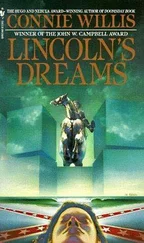Science is even less obvious. It starts with an apple falling, a teakettle boiling. Alex Fleming, taking a last glance around his lab as he left for a long weekend, wouldn’t have seen anything significant in the window left half open, in the sooty air from Paddington Station drifting in. Getting ready to gather up his notes, to tell his assistant to leave everything alone, to lock the door, he wouldn’t have noticed that one of the petri dishes’ lids had slid a fraction of an inch to the side. His mind would have already been on his vacation, on the errands he had to run, on going home.
So was mine. The only thing I was aware of was that Flip had thoughtfully crumpled each clipping into a wad before stuffing them into the trash can, and that there was no way I could get them all smoothed out tonight, and, as a result, I was not only oblivious to the first event in a chain of events that was going to lead to a scientific discovery, but I was about to miss the second one, too. And the third.
I set the trash can on the lab table on top of my jitterbug research, sealed the top with duct tape, stuck on a sign that said “ Do not touch. This means you, Flip,” and went out to my car. Halfway out of the parking lot I thought about Flip’s ability to read, turned around, and went back to my office to get the trash can.
The phone was ringing when I opened the door. “Howdy,” Billy Ray said when I picked it up. “Guess where I am.”
“In Wyoming?” I said. Billy Ray was a rancher from Laramie I’d gone out with a while back when I was researching line dancing.
“In Montana,” he said. “Halfway between Lodge Grass and Billings.” Which meant he was calling me on his cellular phone. “I’m on my way to look at some Targhees,” he said. “They’re the hottest thing going.”
I assumed they were also cows. During my line dancing phase, the hottest thing going had been Aberdeen Longhorns. Billy Ray is a very nice guy and a walking compendium of country-western fads. Two birds with one stone.
“I’m going to be in Denver this Saturday,” he said through the stutter that meant his cellular phone was starting to get out of range. “For a seminar on computerized ranching.”
I wondered idly what its acronym would be. Computerized Operational Wrangling?
“So I wondered if we could grab us some dinner. There’s a new prairie place in Boulder.”
And prairie was the latest thing in cuisine. “Sorry,” I said, looking at the trash can on my lab table. “I’ve had a setback. I’m going to have to work this weekend.”
“You should just feed everything onto your computer and let it do the work. I’ve got my whole ranch on my PC.”
“I know,” I said, wishing it were that simple.
“You need to get yourself one of those text scanners,” Billy Ray said, the hum becoming more insistent. “That way you don’t even have to type it in.”
I wondered if a text scanner could read crumpled.
The hum was becoming a crackle. “Well, maybe next time,” he sort of said, and passed into cellular oblivion.
I put down my noncellular phone and picked up the trash can. Under it, half buried in my jitterbug research, were the library books I should have taken back two days ago. I piled them on top of the stretched duct tape, which held, and carried them and the trash can out to the car and drove to the library.
Since I spend my working days studying trends, many of which are downright disgusting, I feel it’s my duty after work to encourage the trends I’d like to see catch on, like signaling before you change lanes, and chocolate cheesecake. And reading.
Also, libraries are great places to observe trends in best-sellers, and library management. And librarian attire.
“What’s on the reserve list this week, Lorraine?” I asked the librarian at the desk. She was wearing a black-and-white-mottled sweatshirt with the logo UDDERLY FANTASTIC on it, and a pair of black-and-white Holstein cow earrings.
“Led On by Fate,” she said. “Still. The reserve list’s a foot long. You are”—she counted down her computer screen—“fifth in line. You were sixth, but Mrs. Roxbury canceled.”
“Really?” I said, interested. Book fads don’t usually die out until the sequel comes out, at which point the readers realize they’ve been had. Witness Oliver’s Story and Slow Waltz at Cedar Bend. Which is why the Gone with the Wind trend managed to last nearly six years, resulting in thousands of unhappy little boys having to live down the name of Rhett, or even worse, Ashley. If Margaret Mitchell’d come out with Slow Waltz at Tara Bend it would have been all over. Which reminded me, I should check to see if there’d been any dropoff in Gone with the Wind’s popularity since the publication of Scarlett.
“Don’t get your hopes up about Fate,” Lorraine said. “Mrs. Roxbury only canceled because she said she couldn’t bear to wait for it and bought her own copy.” She shook her head, and her cows swung back and forth. “What do people see in it?”
Yes, well, and what did they see in Little Lord Fauntleroy back in the 1890s, Frances Hodgson Burnett’s sickly sweet tale of a little boy with long curls who inherited an English castle? Whatever it was, it made the novel into a best-seller and then a hit play and a movie starring Mary Pickford (she already had the long curls), started a style of velvet suits, and became the bane of an earlier generation of little boys whose mothers inflicted lace collars, curlers, and the name Cedric on them and who would have been delighted to have only been named Ashley.
“What else is on the reserve list?”
“The new John Grisham, the new Stephen King, Angels from Above, Brushed by an Angel’s Wing, Heavenly Encounters of the Third Kind, Angels Beside You, Angels, Angels Everywhere, Putting Your Guardian Angel to Work for You, and Angels in the Boardroom.”
None of those counted. The Grisham and the Stephen King were only best-sellers, and the angel fad had been around for over a year.
“Do you want me to put you on the list for any of those?” Lorraine asked. “ Angels in the Boardroom is great.”
“No, thanks,” I said. “Nothing new, huh?”
She frowned. “I thought there was something…” She checked her computer screen. “The novelization of Little Women,” she said, “but that wasn’t it.”
I thanked her and went over to the stacks. I picked out F. Scott Fitzgerald’s “Bernice Bobs Her Hair” and a couple of mysteries, which always have simple, solvable problems like “How did the murderer get into the locked room?” instead of hard ones like “What causes trends?” and “What did I do to deserve Flip?” and then went over to the eight hundreds.
One of the nastier trends in library management in recent years is the notion that libraries should be “responsive to their patrons.” This means having dozens of copies of The Bridges of Madison County and Danielle Steel, and a consequent shortage of shelf space, to cope with which librarians have taken to purging books that haven’t been checked out lately.
“Why are you throwing out Dickens?” I’d asked Lorraine last year at the library book sale, brandishing a copy of Bleak House at her. “You can’t throw out Dickens.”
“Nobody checked it out,” she’d said. “If no one checks a book out for a year, it gets taken off the shelves.” She had been wearing a sweatshirt that said A TEDDY BEAR IS FOREVER, and a pair of plush teddy bear earrings. “Obviously nobody read it.”
“And nobody ever will because it won’t be there for them to check out,” I’d said. “ Bleak House is a wonderful book.”
Читать дальше












